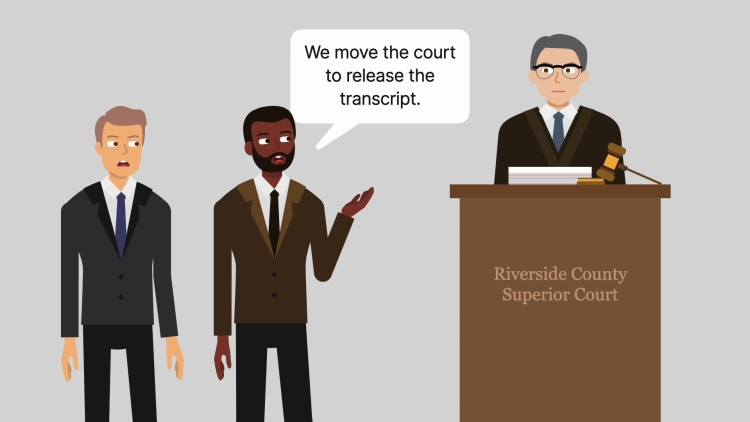Press-Enterprise Co. v. Superior Court [Press-Enterprise II]
United States Supreme Court
478 U.S. 1 (1986)
- Written by Robert Schefter, JD
Facts
Press-Enterprise Company (Press) (plaintiff) joined a state petition in the Superior Court of California for the County of Riverside (superior court) (defendant) to release the transcript of a closed preliminary hearing in a murder case. The defendant in that case, Robert Diaz, was a nurse accused of murdering 12 patients by giving them massive overdoses of heart medication. Diaz moved to exclude the public from his preliminary hearing pursuant to California Penal Code § 868, which permitted closed hearings if necessary to protect the defendant’s right to a fair and impartial trial. The magistrate judge granted the unopposed motion due to the national publicity the case had received. The preliminary hearing began on July 6, 1982 and lasted 41 days. All charges were held for court. At the conclusion of the hearing, Press requested release of the transcript, which the magistrate judge denied. The superior court also denied the request, ruling that release of the transcript might prejudice Diaz’s right to a fair and impartial trial. Press appealed to the Supreme Court of California, which denied the request, holding that there is no First Amendment right of access to preliminary hearings. The United States Supreme Court granted certiorari.
Rule of Law
Issue
Holding and Reasoning (Burger, C.J.)
Dissent (Stevens, J.)
What to do next…
Here's why 907,000 law students have relied on our case briefs:
- Written by law professors and practitioners, not other law students. 47,100 briefs, keyed to 996 casebooks. Top-notch customer support.
- The right amount of information, includes the facts, issues, rule of law, holding and reasoning, and any concurrences and dissents.
- Access in your classes, works on your mobile and tablet. Massive library of related video lessons and high quality multiple-choice questions.
- Easy to use, uniform format for every case brief. Written in plain English, not in legalese. Our briefs summarize and simplify; they don’t just repeat the court’s language.





